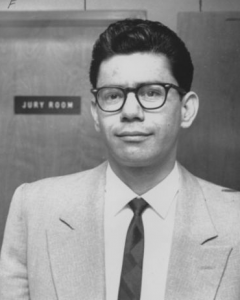 QUEZON City, Philippines (September 10) – “Ikaw ay may karapatang manahimik. Ang iyong mga sasabihin ay maaaring gamitin bilang patunay laban sa iyo sa korte. Ikaw ay may karapatang kumuha ng isang abogado. Kung ikaw ay hindi makakuha ng abogado ay ang korte ang magtatakda para sa iyo.”
QUEZON City, Philippines (September 10) – “Ikaw ay may karapatang manahimik. Ang iyong mga sasabihin ay maaaring gamitin bilang patunay laban sa iyo sa korte. Ikaw ay may karapatang kumuha ng isang abogado. Kung ikaw ay hindi makakuha ng abogado ay ang korte ang magtatakda para sa iyo.”
“You have the rights to remain silent. The things you will say may be used as evidence against you in court. You have the right to obtain a lawyer. If you cannot obtain a lawyer, the court [shall be the one to] appoint [one] for you.”
One of the familiar dialogues of police officers that we usually hear in an operation, in arresting someone or even in dramas are those that are stated above. But what sets the real question is that are we really familiar with that phrase? Do we really know its purpose? Or at least the correct term for it? Yes, we are familiar with some parts of some things that we know but what we don’t actually notice is that we are not aware of what we thought we know. But here in this article, we are going to at least give you helpful and valid information about Miranda Rights.
Yes, you read it right. Miranda Rights is the correct term for that phrase and “Miranda Doctrine” is part of the basic training and knowledge on police investigation and under this doctrine, prior to any questioning during custodial investigation, the person must be warned of the Miranda Rigths.

In an article published in a publication last March 4, 2011, it is said that the concept of Miranda Rights was established in United States law following the 1966 Miranda vs. Arizona Supreme Court decision, which found that the Fifth Amendment and Sixth Amendment rights of Ernesto Arturo Miranda had been violated during his arrest and trial for rape and kidnapping and is said that the criminal suspects must be informed of their right against self-incrimination and their right to consult with an attorney prior to questioning by police and this is said to be known as “Miranda Warning”. To make the long explanation short, the Miranda Right is named after Ernesto Arturo Miranda that was once a convicted felon who sued the state of Arizona for not letting him know his rights to have a lawyer before talking to police.
The “Miranda Rights” is not necessarily have to be read out every single arrest that a police officer will make however, it is said that it is a must that if a person is already taken into police custody and the police carries out a process of interrogation upon the person arrested in custody and he is already being asked incriminating questions, his Miranda Right must be read him.
But like other laws with restrictions there are times that the Miranda Doctrine cannot absolutely be exercised. In the People vs. Taylaran “accidental killing” case, the “Right to silence and to counsel” is NOT applicable because no confessions were written and presented as a result of a formal custodial investigation, contrary to the constitutional law of Miranda Rights, Article III, Section 12 that secret detention places, solitary, incommunicado, or other forms of detention are prohibited.
We must not be contented with what we know of some thing, we sometimes have to take a look at it in a different and deeper manner, like this Miranda Rights that we are talking about. In this article we’ve tackled some of the important facts that an individual should know about the Miranda Doctrine, and hope this serve as one of the helpful compositions that has been made about this topic.
Sources:
Manila Bulletin (Friday, March 4, 2011 issue)
Uber Digests – Miranda Rights in the Philippines (March 13, 2013)
Funtrivia.com – how did the Miranda Rights get their name?
(written by Donna Marie Rodriguez, edited by Jay Paul Carlos, additional research by Lovely Ann Cruz)







